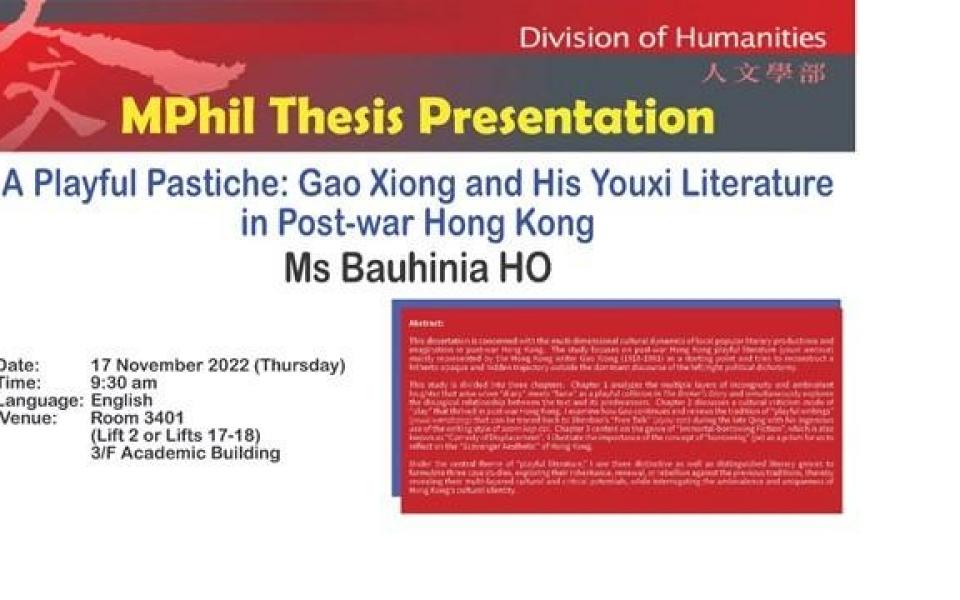Abstract:
This dissertation is concerned with the multi-dimensional cultural dynamics of local popular literary productions and imagination in post-war Hong Kong. The study focuses on post-war Hong Kong playful literature (youxi wenxue) mainly represented by the Hong Kong writer Gao Xiong (1918-1981) as a starting point and tries to reconstruct a hitherto opaque and hidden trajectory outside the dominant discourse of the left/right political dichotomy.
This study is divided into three chapters. Chapter 1 analyzes the multiple layers of incongruity and ambivalent laughter that arise when “diary” meets “farce” as a playful collision in The Broker’s Diary and simultaneously explores the dialogical relationship between the text and its predecessors. Chapter 2 discusses a cultural criticism mode of “play” that thrived in post-war Hong Kong. I examine how Gao continues and renews the tradition of “playful writings” (youxi wenzhang) that can be traced back to Shenbao’s “Free Talk” (ziyou tan) during the late Qing with his ingenious use of the writing style of saam kap dai. Chapter 3 centers on the genre of “Immortal-borrowing Fiction”, which is also known as “Comedy of Displacement”. I illustrate the importance of the concept of “borrowing” (jie) as a prism for us to reflect on the “Scavenger Aesthetic” of Hong Kong.
Under the central theme of “playful literature,” I use three distinctive as well as distinguished literary genres to formulate three case studies, exploring their inheritance, renewal, or rebellion against the previous traditions, thereby revealing their multi-layered cultural and critical potentials, while interrogating the ambivalence and uniqueness of Hong Kong’s cultural identity.
